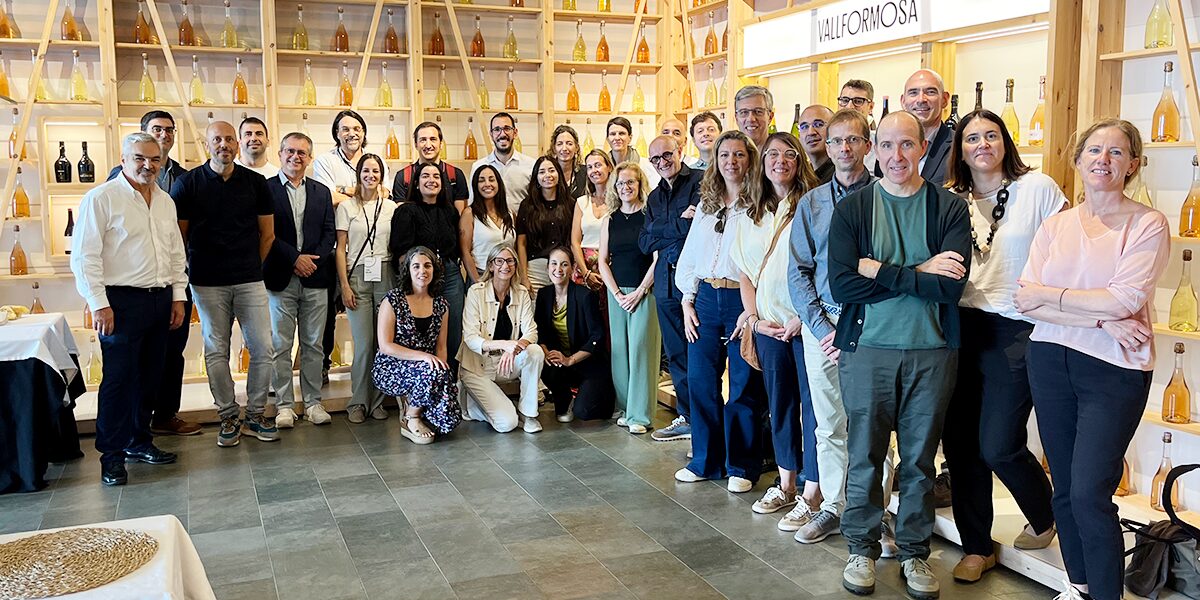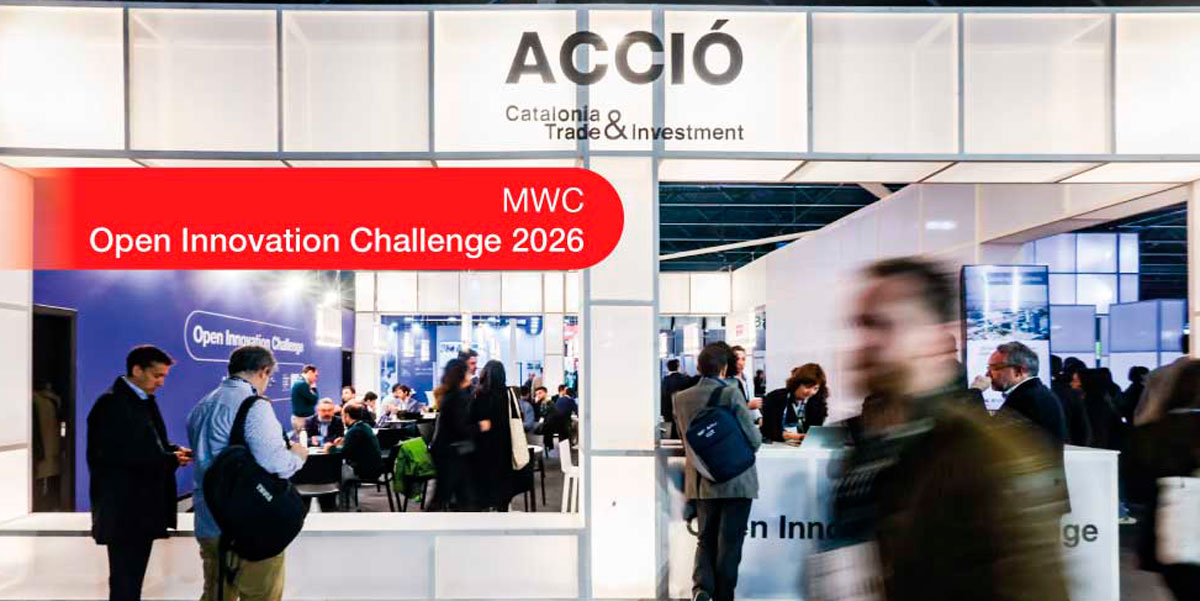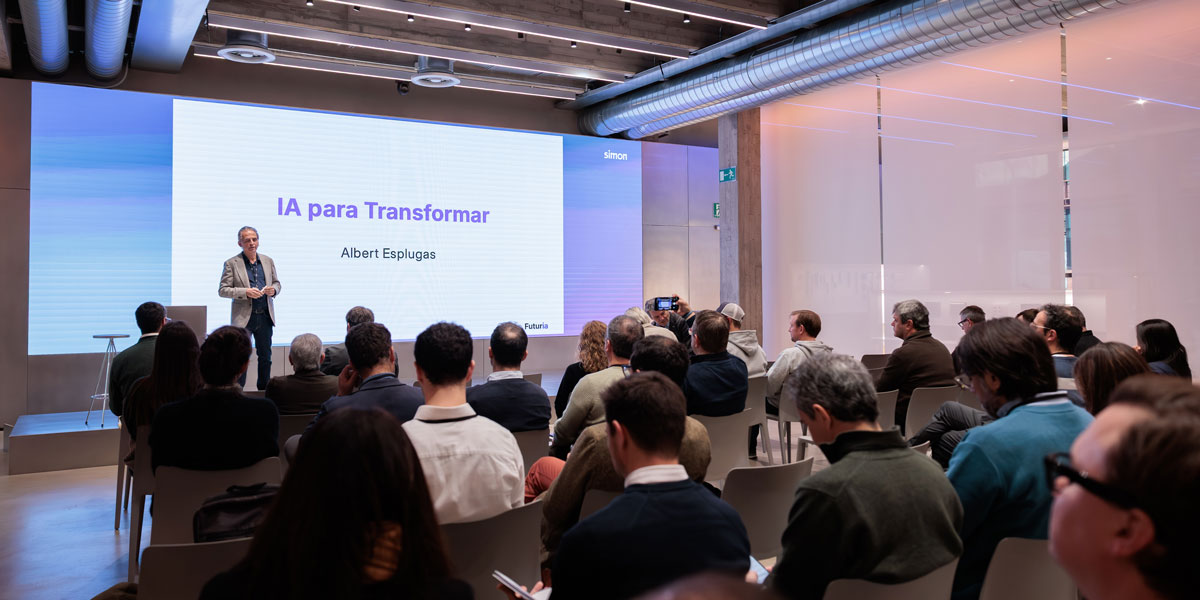“Innovation is a continuous process based on learning, experimentation, and calculated risk.” We speak to David Tapias, Fluidra’s Director of Innovation.
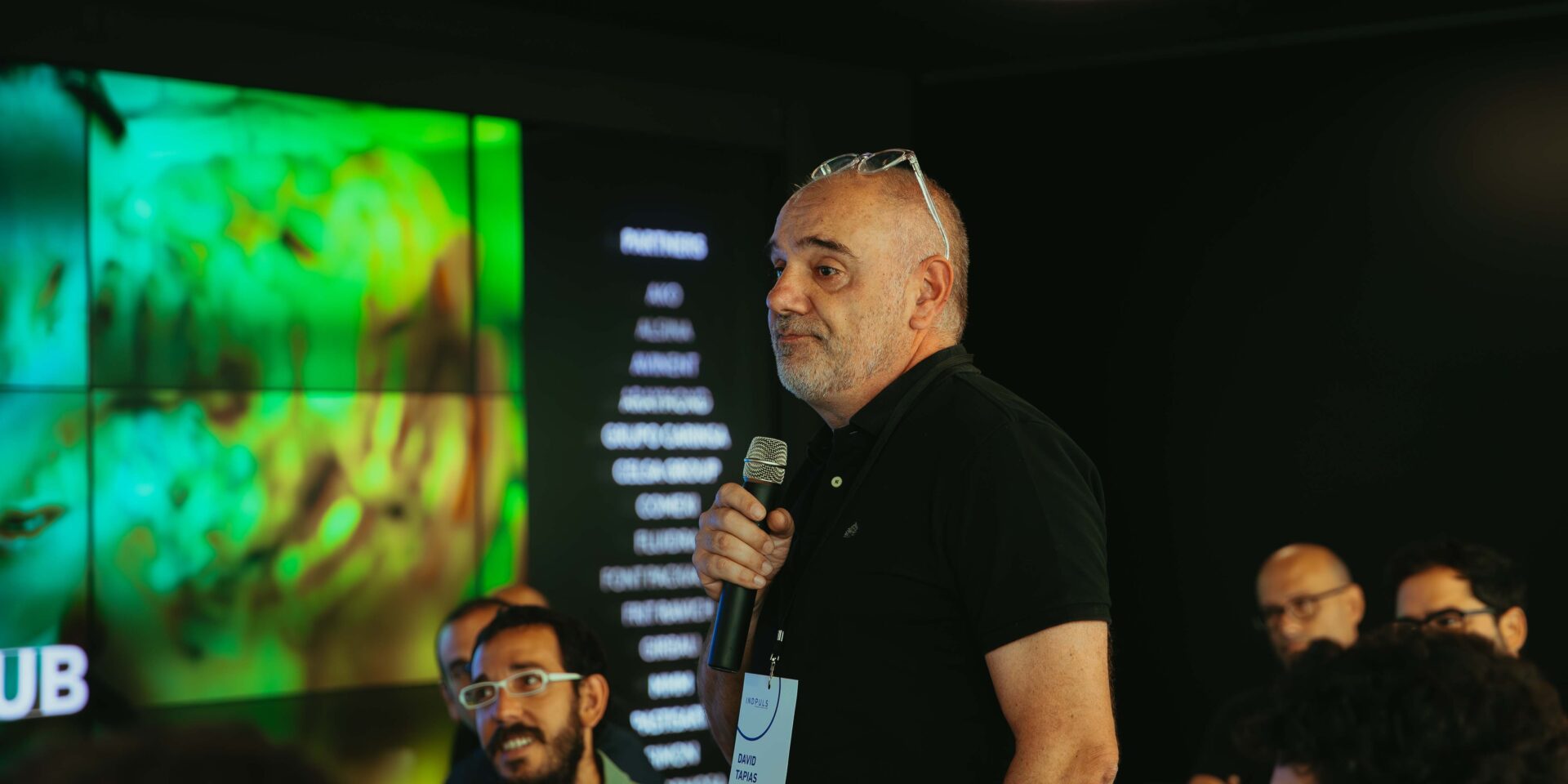
Founded in 1969, Fluidra is a global leader in the development of innovative products and services in the pool and wellness market. At Fluidra, more than 200 engineers work every day to develop value-added, user-oriented solutions through innovation in areas of great relevance, such as sustainability and the digitalisation of the sector.
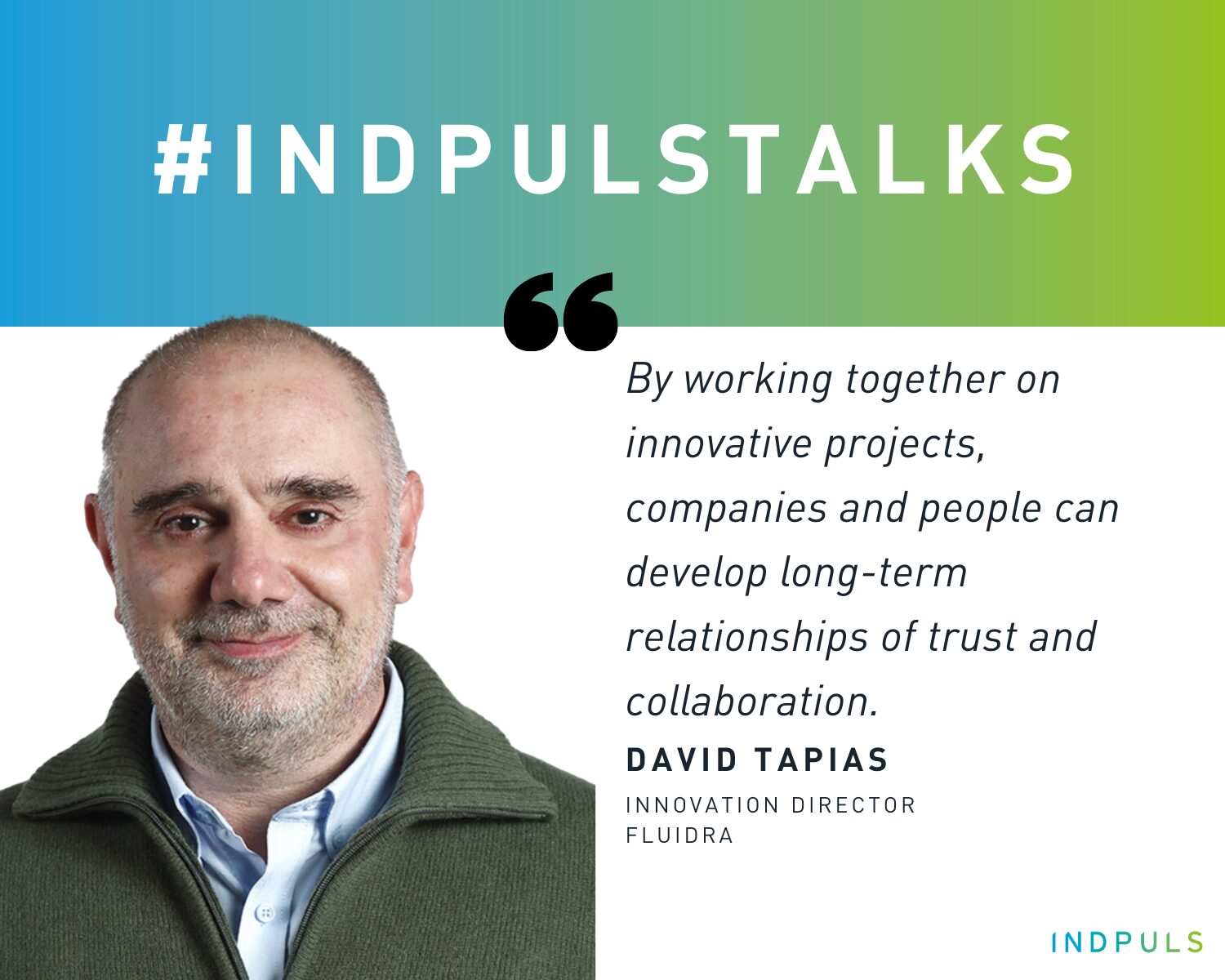
Below, David Tapias shares his views on innovation, Industry 4.0 and various tips for applying innovation in your day-to-day work.
Innovation can have a very broad definition that takes – depending on each person/entity – different scopes and dimensions. What does innovation mean to you?
For me, innovation is the process of discovering and developing new ideas, products, services or processes that improve efficiency, solve problems and create value for people and organisations. From small improvements to existing processes to major disruptive breakthroughs in technology, design and strategy. Innovation is a continuous process based on learning, experimentation and calculated risk. It is key to economic growth, competitiveness and social progress.
How do you apply innovation in your daily life and in your work/business?
- Look for new ways of doing things in your work or personal life. Think outside the box and look for inspiration in other fields or industries.
- Surround yourself with people with different ideas and perspectives. Diversity of thought is essential for innovation.
- Take advantage of emerging technologies. These can offer new ways of doing things and improve your processes.
- Experiment and fail. Innovation often involves trying new things and learning from your mistakes.
- Always seek to improve and evolve.
Why do you think collaborative innovation is important?
For several reasons:
- It increases efficiency: By working in teams, resources and knowledge can be shared to reach solutions faster and at a lower cost.
- It fosters creativity: Collaboration allows people to generate new perspectives and approaches that can lead to more creative and innovative solutions.
- It improves adaptability: Collaborative innovation helps companies keep up with trends and developments in their industry, allowing them to better adapt to changes in the marketplace.
- It strengthens relationships: By working together on innovative projects, companies and individuals can develop long-term relationships of trust and collaboration.
- It facilitates implementation: Collaborative innovation enables stakeholders to work together to develop viable solutions and ensure their successful implementation.
“User-driven product innovation is essential to the culture and growth of Fluidra, which understands R&D and Innovation as a fundamental part of its DNA”.

What should innovation look like to make an impact?
- Customer-oriented: Innovation must be focused on satisfying the needs and desires of customers. This means understanding market trends and listening to customers’ opinions and suggestions.
- Sustainable: Innovation must take into account its environmental and social impact, and seek solutions that are sustainable in the long term.
- Scalable: The innovation must have the capacity to grow and expand nationally or internationally.
- Profitable: The innovation must be profitable for companies, enabling them to generate revenue and improve their long-term profitability.
- Impactful: The innovation must have a significant impact on industry or society. It must improve people’s quality of life or solve important problems.
- Collaborative.
How do you envision the future of the industrial ecosystem?
It is likely to be affected by a number of factors, such as technological advancement, climate change and changing consumer preferences. Some trends that may influence the future of the industrial ecosystem include:
- Automation and robotics: Automation and robotics are expected to play an increasing role in the production and processing of goods, which could reduce the need for human labour.
- Renewable energy: The use of renewable energy is expected to increase in the future, which could have a significant impact on industry and society in general.
- Circular economy: The circular economy is expected to become an increasingly important trend in the future, as it seeks to reduce waste and maximise the use of resources.
- Internet of Things (IoT): IoT is expected to have a major impact on industry, enabling connectivity and automation at all levels of production, from the procurement of raw materials to the shipment of finished products.
- Artificial intelligence (AI): AI is expected to have a major impact on the industry by automating processes, improving efficiency and making more informed decisions.
“Implementing advanced technologies requires skilled staff, it is important that organisations invest in training and educating their staff to ensure they can work with new technologies.”

How do you think organisations should adapt to Industry 4.0?
- Invest in technology: Industry 4.0 relies on advanced technologies such as IoT, artificial intelligence, automation and robotics, so it is important for organisations to invest in these technologies to compete.
- Train staff: Implementing advanced technologies requires trained staff, it is important that organisations invest in training and educating their staff to ensure they can work with the new technologies.
- Adopt a collaborative approach: Industry 4.0 is based on collaboration and interconnectedness, it is important that organisations adopt a collaborative approach and work with other organisations and suppliers to make the most of Industry 4.0 opportunities.
- Adopt a customer-centric approach: Industry 4.0 enables greater customisation and tailoring to customer needs, it is important that organisations adopt a customer-centric approach in order to deliver personalised products and services.
- Adopt a circular economy approach: Industry 4.0 promotes greater efficiency and lower environmental impact, it is important that organisations adopt a circular economy approach to reduce waste and maximise the use of resources.
- Be flexible and adaptable: Industry 4.0 is characterised by rapid evolution, it is important for organisations to be flexible and adaptable in order to evolve and adapt to change.
How can innovation contribute to a more sustainable and planet-friendly industry?
In several ways:
- By developing clean and efficient technologies: Innovation in clean and efficient technologies, such as renewable energy and energy efficiency, can help reduce greenhouse gas emissions and improve environmental sustainability.
- Adopting circular economy approaches: Innovation in circular economy approaches, such as reuse, recycling and repair, can help reduce environmental impacts and improve resource efficiency.
- Developing sustainable products and services: Innovation in sustainable products and services, such as organic products and sustainable transport services, can help reduce environmental impact and promote more sustainable lifestyles.
- Improving process efficiency: Innovation in process efficiency, such as automation and robotics, can help reduce waste and improve resource efficiency.
- Fostering collaboration: Collaborative innovation can help engage different stakeholders in the development of sustainable and planet-responsible solutions.
- Promoting environmental education and awareness: Innovation in environmental education and awareness can help foster a culture of sustainability and responsibility in industry and society at large.
What is INDPULS for you?
A catalyst for collaborative industrial innovation.


